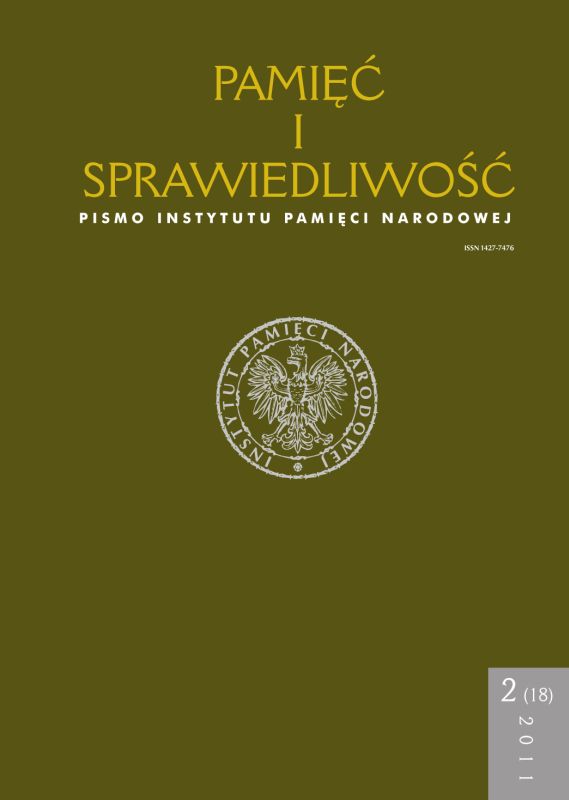Bonn – Warszawa – „Solidarność”. Dyplomacja RFN wobec PRL i „Solidarności” (styczeń–wrzesień 1989 roku)
Pamięć i Sprawiedliwość, Bd. 18 Nr. 2 (2011), pages: 179-195
Publication date: 2011-12-30
Abstract
Literaturhinweise
D. Korger, Die Polenpolitik der deutschen Bundesregierung 1982–1991, Bonn 1993 D. Bingen, Kontinuität und Wandel. Die Bonner Polenpolitik von den Anfangsjahren bis zum Freundschaftsvertrag von 1991 [w:] Erlebte Nachbarschaft. Aspekte der deutsch–polnischen Beziehungen im 20. Jahrhundert, red. J.P. Barbian, M. Zybura, Wiesbaden 1999, s. 52 K. Malinowski, Innere und äussere Faktoren des Umbruchs in den polnisch-deutschen Beziehungen [w:] Deutsche und Polen auf dem Weg zu einer partnerschaftlichen Nachbarschaft 1989–1998: Versuch einer Bilanz. Konferenzmaterialen, red. D. Bingen, K. Malinowski, Köln 1999, s. 11 D. Bingen, Polityka Republiki Bońskiej wobec Polski. Od Adenauera do Kohla 1949–1991, Kraków 1997 D. Bingen, Die deutsch-polnischen Beziehungen nach 1945, „Aus Politik und Zeitgeschichte”, 2005, nr 5–6, s. 13 H. Teltschik, Die Bundesrepublik Deutschland und Polen: eine schwierige Nachbarschaft im Herzen Europas, „Aussenpolitik” 1990, nr 1, s. 7 F. Pflüger, Richard von Weizsäcker. Ein Portrait aus der Nähe, Stuttgart 1990 Hans-Adolf Jacobsen, Deutschland und Polen 1949–1989. Beziehungen im Zeichen von Konfrontation und Kooperation [w:] Deutsche und Polen 1945–1995: Annäherungen–Zbliżenia. Begleitbuch zur Ausstellung im Haus der Geschichte der Bundesrepublik Deutschlandk Bonn, 7 III–5 V 1996, Bonn–Düsseldorf 1996, s. 462–463 D. Bingen, Auswirkungen auf Polen [w:] Umbruch in Osteuropa. Interdependenzen und Konsequenzen, red. H. Vogel, Köln 1990 Ch. Klessmann, Ostpolitik und Koexistenz der Systeme [w:] Deutschland und Polen im 20. Jahrhundert, Brunszwik 2000
Am häufigsten gelesenen Artikel dieser/dieses Autor/in
- Patryk Pleskot, Samobójstwo, wypadek, a może morderstwo? Wokół śmierci Jerzego Zawieyskiego (1969 rok) , Pamięć i Sprawiedliwość: Bd. 24 Nr. 2 (2014)
- Patryk Pleskot, [Recenzja] Patryk Pleskot, Sukces „grzecznej” historii. Niemiecko-francuski podręcznik historii najnowszej , Pamięć i Sprawiedliwość: Bd. 15 Nr. 1 (2010)
 Język Polski
Język Polski
 English
English
 Deutsch
Deutsch
 Français (France)
Français (France)
 Italiano
Italiano
 Русский
Русский


 PDF (Język Polski)
PDF (Język Polski)
